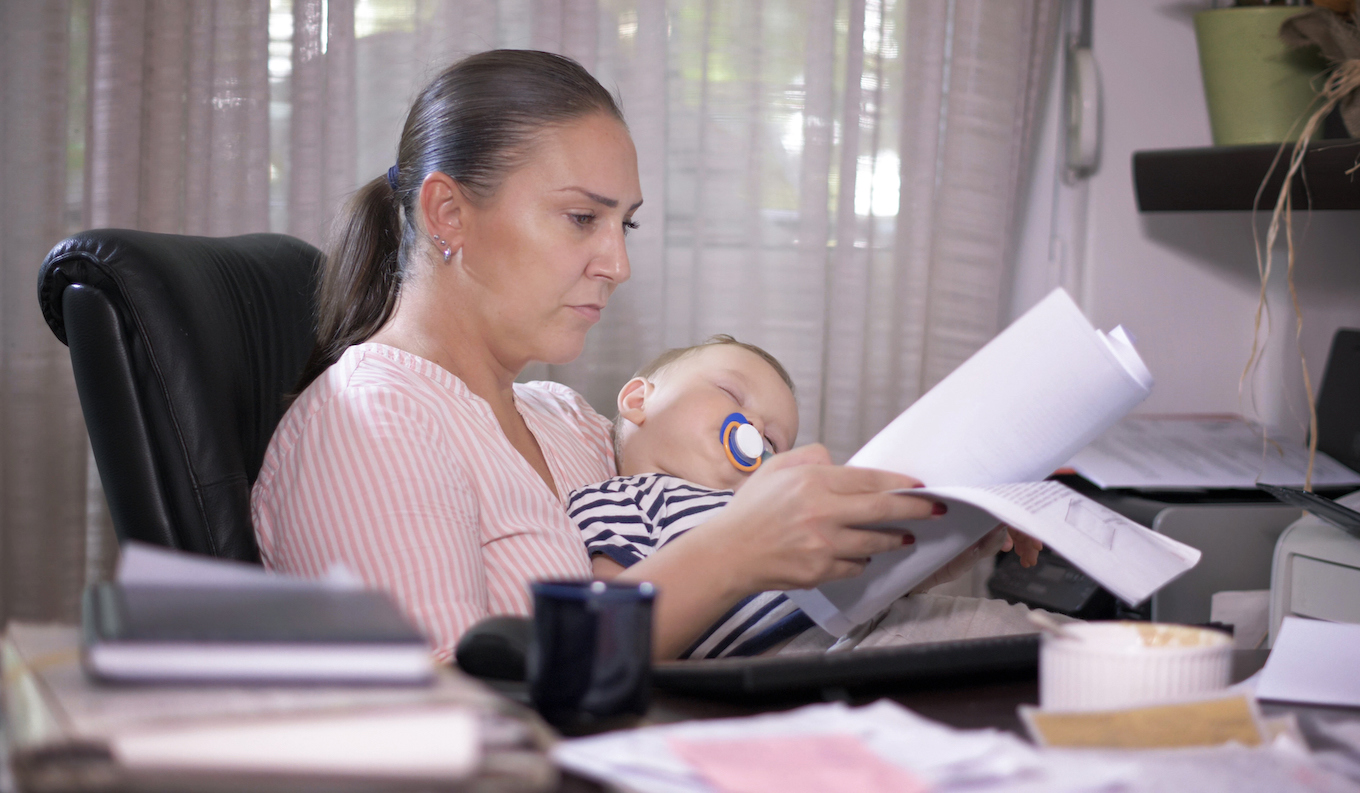
August is National Breastfeeding Month, dedicated to educating people about the benefits of breastfeeding for babies and mothers alike. Because breastfeeding is so important, there are many resources available to nursing mothers via their health insurance, government programs, or even just online groups. Of course, the best baby is a fed baby — whether a mom breastfeeds or not. But for those who do choose the breastfeeding route, it's a good idea to take advantage of the resources (many of which are free) that exist for them.
Keep reading to see which resources may be available nearby.
More from Mom.com: 10 Things No One Told Me About Breastfeeding
Basic Breastfeeding Guide

It can be so hard to know where to start with breastfeeding education. One helpful place is the comprehensive guide published by the government's Office on Women's Health. The free 60-page guide covers topics like milk storage tips, helpful holds, how to get a good latch, and more.
Ask for a Lactation Consult

After a patient gives birth, some hospitals will automatically set up a lactation consult, according to the Cleveland Clinic. But in case that process doesn't happen automatically, new moms should feel empowered to ask for one. It's one of those resources that will likely be available to them before they're discharged, and they should definitely take advantage of it if so.
Insurance Aid

Depending on the mother's insurance plan, there may be some breastfeeding benefits that she's entitled to through her healthcare coverage. According to the Affordable Care Act website, most plans "must provide breastfeeding support, counseling, and equipment for the duration of breastfeeding." This should even include the cost of buying or renting a breast pump.
Lactation Visits

According to Amy Peterson, an international board certified lactation consultant (IBCLC) for Evenflo Feeding, one of the benefits insurance may provide is up to six lactation visits. Peterson tells Mom.com that new mothers may want to save a handful of those for after they give birth. Since babies can have varying needs, the help can be more tailored post-birth.
More from Mom.com: 17 Celebs Who Practiced Extended Breastfeeding
When to Get Help

For moms who aren't sure whether they'll need extra help beyond what's initially offered, Peterson offers some warning signs to watch out for. "The biggest one is if it hurts to breastfeed and it hurts the entire feeding, that is a red flag to get help," she says. "The other reason would be if your baby's not pooping as expected … it's an indication that the baby's not feeding adequately at the breast and you'll wanna get help."
Peterson says that generally a baby should be pooping once the first 24 hours, two times in the second 24 hours, and so on.
Finding Extra Help

If moms determine that they do need more guidance with regards to breastfeeding, Peterson recommends asking at the hospital or talking to their doctor to see if they have any references. Additionally, moms can search the United States Lactation Consultant Association website for a consultant who practices in their area.
Nutrition Recommendations

For those who start breastfeeding, Peterson cautions that they will probably be extra thirsty as a result of the hormones associated with the let-down reflex during breastfeeding. She recommends that breastfeeding moms make sure to have plenty of fluids and snacks on hand in addition to a generally "balanced diet."
Further information on creating a balanced diet for breastfeeding can be found on the US Department of Agriculture's website for breastfeeding support. The advice includes eating varied proteins, whole grains, fruits, and vegetables while staying away from alcohol or too much caffeine.
Find Support Groups

Having a new baby can be a really overwhelming experience, but it can be made better with a strong support system. Peterson recommends both Breastfeeding USA and La Leche League as good resources for finding local or online support groups aimed at those who are breastfeeding.
Support for Black Mothers

According to PBS, a 2015 study found that there was a 16% disparity between white mothers and Black mothers who breastfed — often because there was a lack of education and support aimed at Black mothers.
Peterson recommends several Facebook groups for Black mothers to get that additional support — including Black Mothers' Breastfeeding Association, African American Breastfeeding Network, and Reaching Our Sisters Everywhere.
Family & Friends Can Help

The best is when moms don't have to ask their friends and family for help — so for anyone reading this who knows a breastfeeding mom, now's the time to pitch in. Peterson says that a mother's family and friends can offer "emotional support" as well as physical support by being around, helping with any other children she has, making food, etc.
"What we need is the mom to be able to use her energy on becoming a mom and let other people kind of mother her," Peterson says.
Workplace Protections

For working mothers, there are laws in place to protect their right to pump at work. According to the US Department of Labor, under the Fair Labor Standards Act, nursing mothers are entitled to reasonable breaks to pump and a space to do so for up to a year after giving birth. The pumping space provided must be private, available when needed, and can't just be a bathroom.
Peterson recommends that mothers speak with their employers about these accommodations ahead of time to ensure that everybody is on the same page once they return to work.
Ready for Weaning

Peterson says that weaning happens somewhat naturally as time goes on since babies can start eating solid foods around six months. She says that health academies often recommend up to two years of breastfeeding or a minimum of a year. But if mothers wish to wean on a different timeline, they should just speak to their doctor or a breastfeeding helper like a lactation consultant.
That will help moms to "figure out what [weaning's] gonna look like for them and get some tips on how to do that comfortably," Peterson says.
Milk Donation

Nursing moms who may produce extra milk can choose to donate it to other babies in need if they wish. Peterson says that donating to a recognized milk bank in their area is the best way to do that, since they'll screen the milk. She doesn't advise that people seek or get milk via social media platforms like Facebook mom groups. "That's never recommended just because you don't know the health status and the medications, etc. a mom is taking," Peterson says.
One of the largest milk banks is Human Milk Banking Association of North America that will help moms find resources in their area.
Travel Tips

In addition to the resources Peterson gave Mom.com, there are a couple more that breastfeeding mothers may find helpful. The Transportation Security Administration has guidelines on how to transport breast milk through airport security.
Even though it's a liquid, it is allowed to be taken aboard a plane since it's a "medically necessary liquid." The full rules are available on the linked website, but the basics include letting the TSA agent know and packing the milk in clear bottles to help expedite the screening process.
Breastfeeding Helpline

For any further questions, moms can reach out to the free breastfeeding helpline provided by the US Department of Health and Human Resources. The phone number is 1-800-994-9662 and it's staffed from 9AM to 6PM ET, Monday through Friday. They can answer questions on topics like increasing milk supply, ensuring the baby is eating enough, and more.




